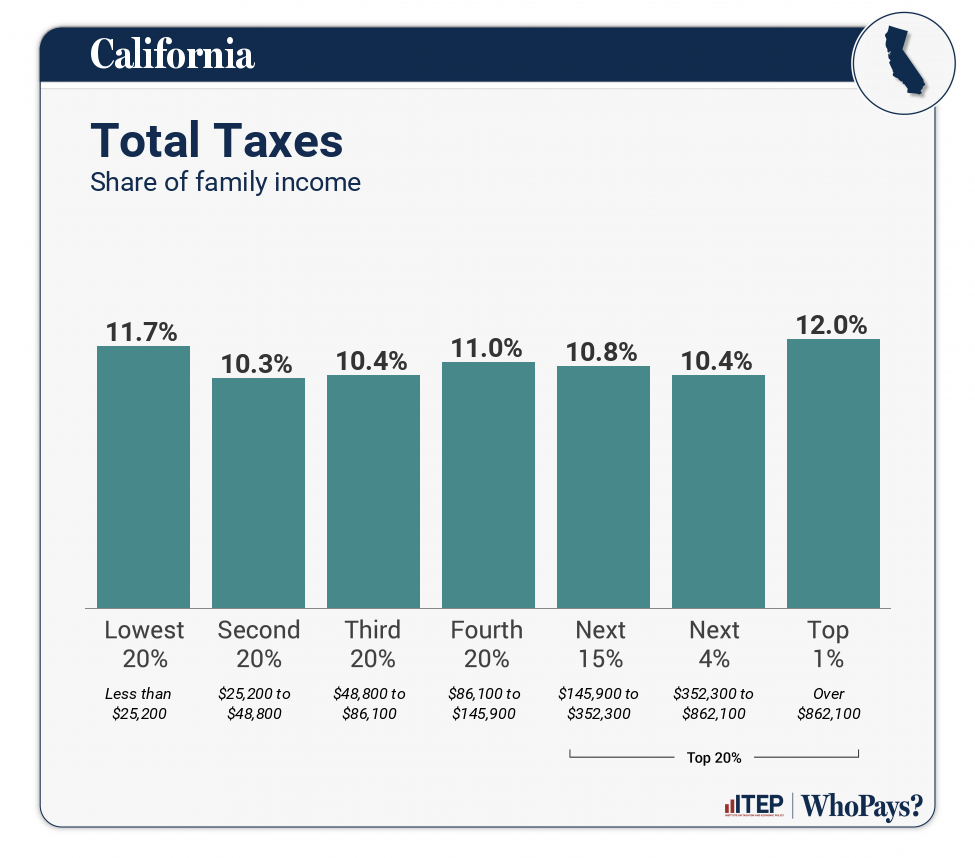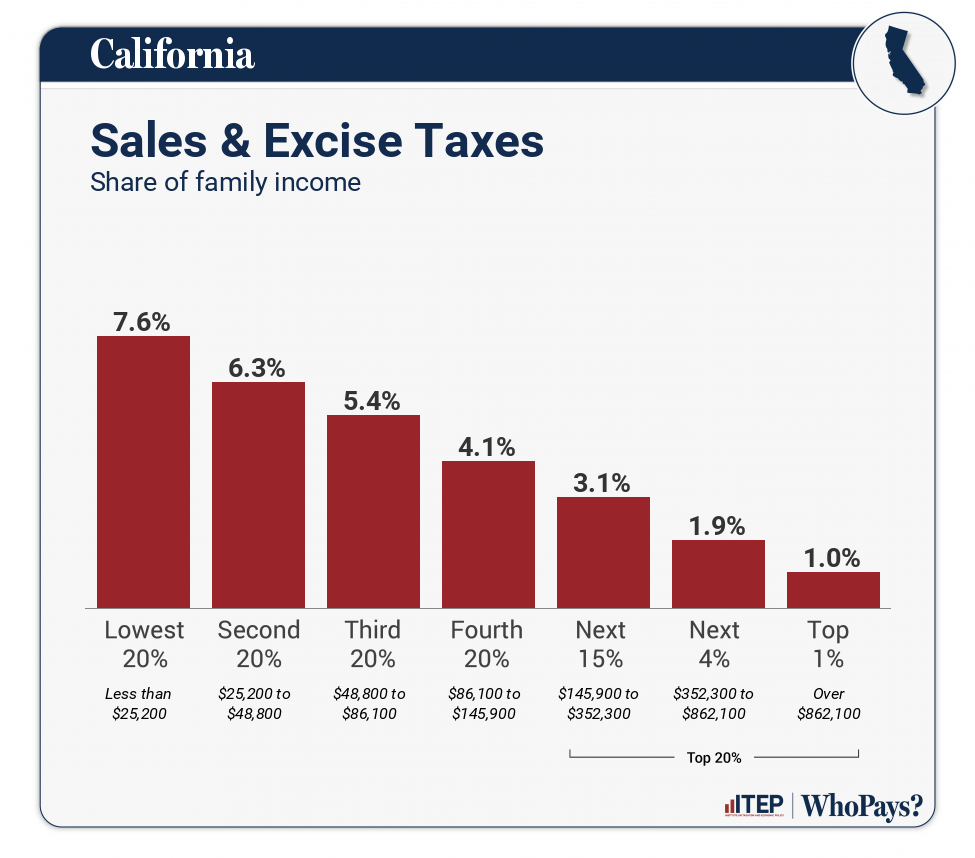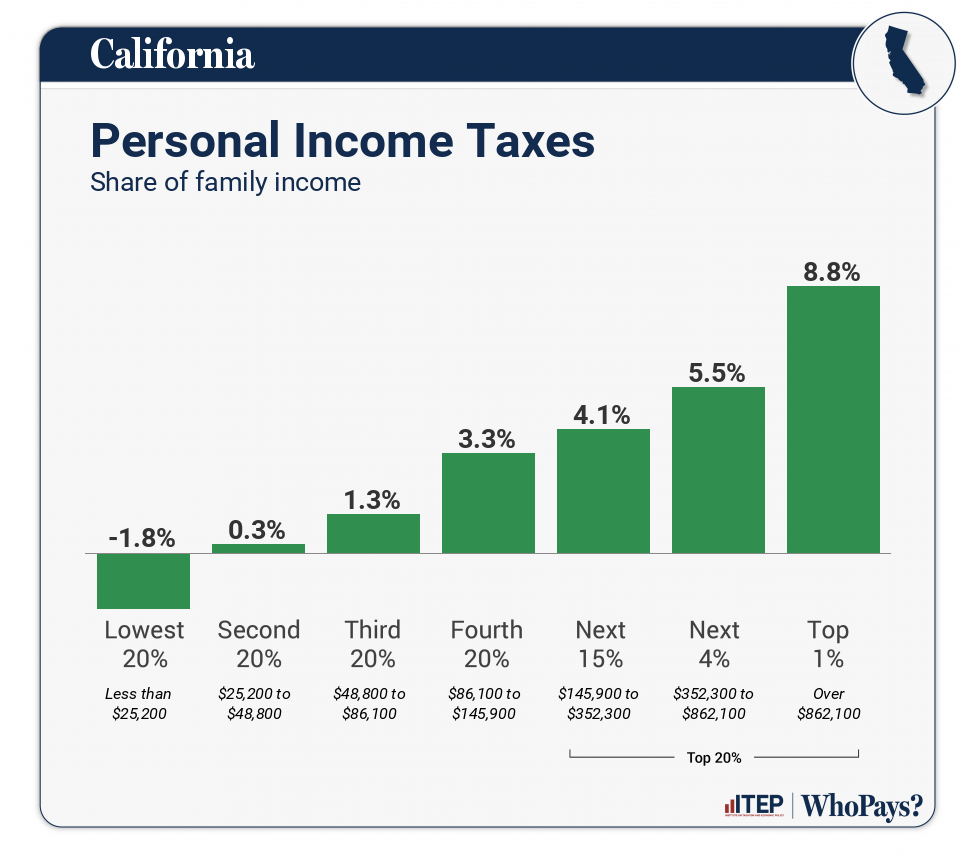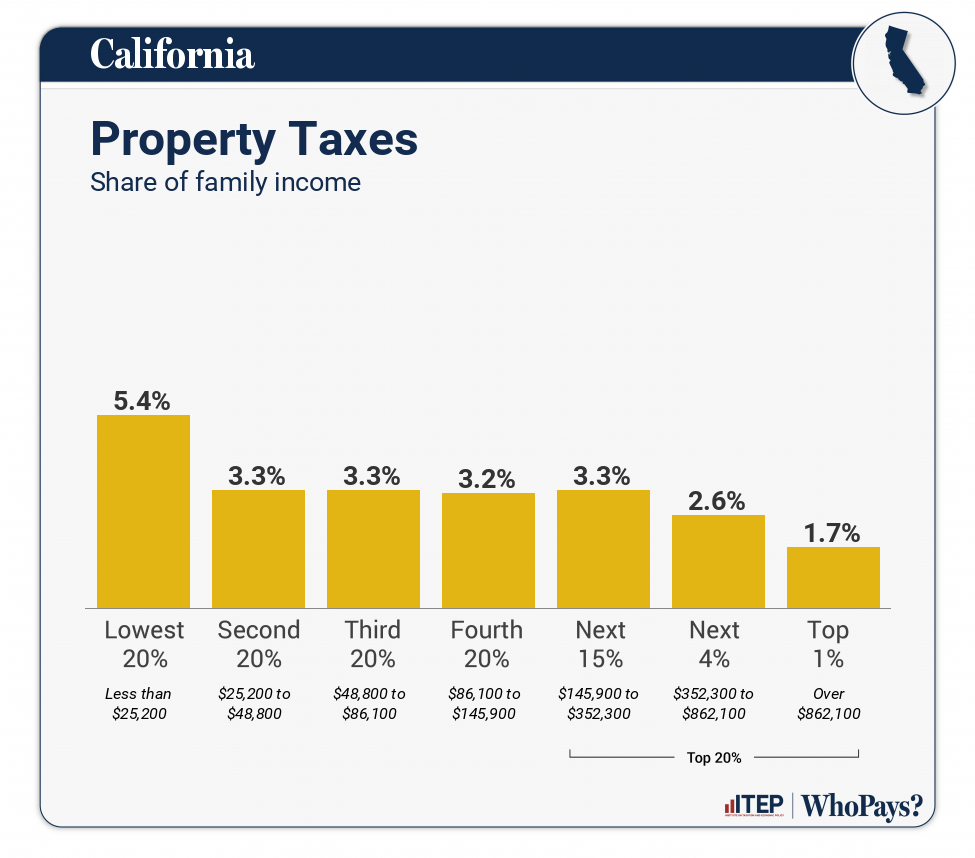
California
Download PDF
State and local tax shares of family income
| Top 20% | |||||||
| Income Group | Lowest 20% | Second 20% | Middle 20% | Fourth 20% | Next 15% | Next 4% | Top 1% |
| Income Range | Less than $25,200 | $25,200 to $48,800 | $48,800 to $86,100 | $86,100 to $145,900 | $145,900 to $352,300 | $352,300 to $862,100 | Over $862,100 |
| Average Income in Group | $14,200 | $36,500 | $65,900 | $117,100 | $211,200 | $523,900 | $2,140,300 |
| Sales & Excise Taxes | 7.6% | 6.3% | 5.4% | 4.1% | 3.1% | 1.9% | 1% |
| General Sales–Individuals | 4.2% | 3.9% | 3.4% | 2.7% | 2% | 1.1% | 0.4% |
| Other Sales & Excise–Ind | 2% | 1.2% | 0.8% | 0.6% | 0.4% | 0.2% | 0.1% |
| Sales & Excise–Business | 1.4% | 1.2% | 1.1% | 0.9% | 0.8% | 0.6% | 0.5% |
| Property Taxes | 5.4% | 3.3% | 3.3% | 3.2% | 3.3% | 2.6% | 1.7% |
| Home, Rent, Car–Individuals | 5% | 3% | 3% | 2.9% | 3% | 2.2% | 0.8% |
| Other Property Taxes | 0.4% | 0.3% | 0.3% | 0.3% | 0.3% | 0.4% | 0.9% |
| Income Taxes | -1.6% | 0.5% | 1.4% | 3.4% | 4.2% | 5.7% | 9.2% |
| Personal Income Taxes | -1.8% | 0.3% | 1.3% | 3.3% | 4.1% | 5.5% | 8.8% |
| Corporate Income Taxes | 0.1% | 0.1% | 0.1% | 0.1% | 0.1% | 0.2% | 0.4% |
| Other Taxes | 0.3% | 0.3% | 0.3% | 0.2% | 0.2% | 0.2% | 0.2% |
| TOTAL TAXES | 11.7% | 10.3% | 10.4% | 11% | 10.8% | 10.4% | 12% |
| Individual figures may not sum to totals due to rounding. | |||||||
ITEP Tax Inequality Index
California has a hybrid system that is progressive through some parts of the income distribution and regressive through other parts. On balance, the overall system tilts slightly progressive according to ITEP’s Tax Inequality Index because high-income families pay rates that are somewhat higher than those paid by middle-income families, and roughly on par with those paid by low-income families. California ranks 47th on the Index, meaning that three states and the District of Columbia have more progressive systems. (See Appendix B for state-by-state rankings and the report methodology for additional detail.)
Tax features driving the data in California
|
Requires combined reporting for the corporate income tax but excludes profits booked overseas, including in tax haven countries
Graduated personal income tax structure with a separate bracket for millionaires
Personal income tax credits in place of personal and dependent exemptions
Limits itemized deductions for upper-income taxpayers
Refundable Child Tax Credit (CTC) for young children
Refundable Earned Income Tax Credit (EITC)
Sales tax base excludes groceries
|
|
|
No property tax “circuit breaker” credit for low-income, non-senior taxpayers
Comparatively high combined state and local sales tax rates
Does not levy a tax on estates or inheritances
Strict property tax limitations
|








